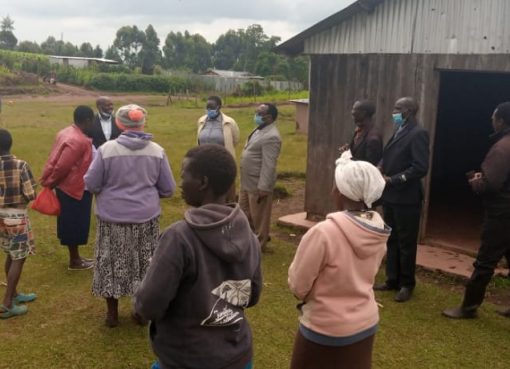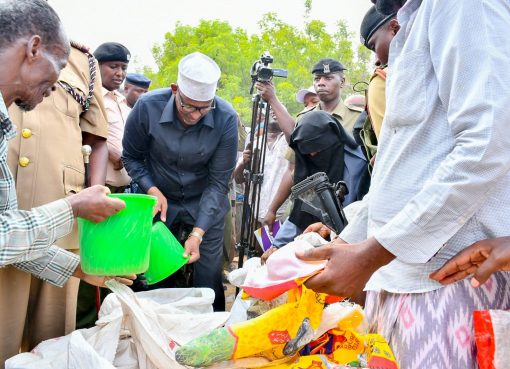A drive or a walk through a typical Kenyan town or market centre would perfectly draw one’s sight to a line of or a heap of gas cylinders placed outside shops waiting for buyers.
The cylinders always come in different colours as per the company that distributes them.
Consumers’ choice for gas also depends on the cost and durability of the gas cylinders that come in different weights.
In recent times, the trend has been that more Kenyans are turning to gas, from other forms of cooking fuel such as kerosene since it is safer to use. Hundreds of Kenyans now buy and use this form of fuel even at the village level.
Gas cylinders are easy to get today. Just a few meters from one’s abode, there are tens of shops and even makeshift shops selling gas. But have Kenyans questioned their safety about the points where they get their gas cylinders?
Mr Collins Owino, an electrician at Awendo town in Migori County, regrets that some of the shops selling this gas are stationed right in the middle of estates and homes where hundreds of Kenyans live.
“I am worried that many of those selling the gas cylinders carelessly heap these highly flammable wares in their small shops or display them outside in the sunbaked spots where they are likely to explode and endanger the lives of the people around,” said Owino during a press interview recently.
Another resident of Migori County, Mrs Mary Oloo, argues that some of the gas cylinders are even sold at people’s homes where they are kept in closets that are not well-ventilated thereby posing high risks of explosions and deaths to the people.
Ms Oloo, a teacher at one of the local schools, is concerned whether those issuing permits to traders selling the gas first inspect the places where this gas is intended to be sold before allowing the business joints to operate.
“Just like gas, I am also worried by the many petrol stations that are currently being built within residential areas. Do those charged with the safety of the people inspect the positions of the Petrol stations before issuing the licenses to the owners?” paused Oloo.
The intense use of gas and the careless keeping of the gas cylinders comes at a time when the State has adopted stiffer penalties for illegal LPG dealers, including dealing with counterfeit gas operators and capping transportation of gas cylinders to three unless regulatory exemptions are issued.
Under the Petroleum (Liquefied Petroleum Gas) Regulations 2019 that came into effect in January 2020, any trader found selling gas cylinders without a brand’s consent is liable to a fine of not less than Sh10 million.
Counterfeits pose the danger of explosions as well as consumer exploitation through tampering with the weight and quality of the gas.
In the past years, Kenya has faced serious accidents involving gas explosions in areas where illegal refilling is done and, that have led to deaths and injuries to many Kenyans due to the greediness of some unscrupulous business people.
In regards to the safety of people, Kenyans and especially the residents of Migori are now asking; for how long are they going to live with the fears of dying or being maimed by the threats posed by the many gas cylinders being displayed carelessly around them?
By George Agimba




